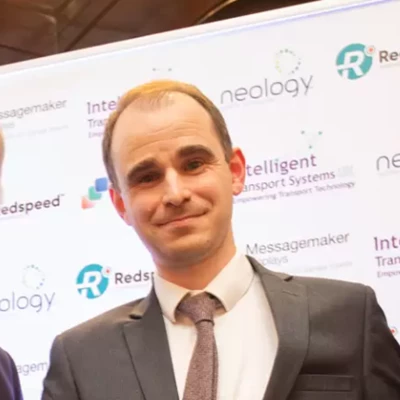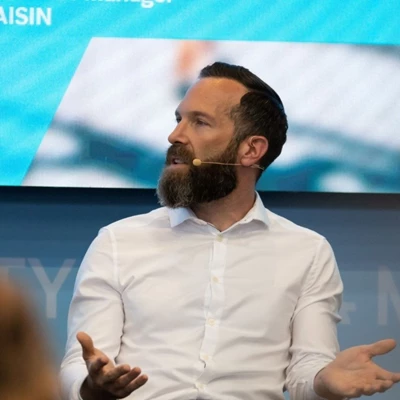Wednesday, November 27, 2024
10:00
Ministerial Keynote
10:00 - 10:30
- The Cabinet Secretary will discuss the programme for government, the push to improve road safety performance, major project updates, and efforts to tackle climate change, deliver net zero, and promote innovation.
10:35
Delivering A9 Dualling
10:35 - 10:55
Major Projects
- A9 Dualling will upgrade 83 miles of single carriageway between Perth and Inverness, making it one of Scotland’s largest ever transport infrastructure programmes.
- Hear from Gemma Patterson, Head of A9 Dualling Programme Delivery as she provides an update on the delivery of the Programme, and what we can expect to see in 2025.
11:00
Traffic Scotland – Service Evolution
11:00 - 11:20
CAV and Transport Intelligence
- How the Traffic Scotland Service is evolving to make increasing use of lighter technology/data solutions.
- How connected vehicle data will be used to enhance service delivery and deliver on Scottish Government priorities.
11:25
Save Lives with Connected Vehicle Data Insights
11:25 - 11:45
CAV and Transport Intelligence
- Predictive Crash Analysis: Using connected vehicle data to forecast high-risk road areas.
- Proactive Road Safety: Identifying potential crash hotspots through advanced data analysis.
- Tailored Risk Assessment: Pinpointing hazardous road sections using extensive data processing.
- Actionable Insights: Practical solutions integrated into existing systems.
11:50
What the Autonomous Vehicle Act Means to the Industry
11:50 - 12:10
CAV and Transport Intelligence
- As one of the sponsors of the All Party Parliamentary Group on self-driving, Giles will present an overview of the recent Automated Vehicles Act and what it means in practice for network operators, service providers and those across the highways industry.
12:15
Maximising Active Travel and Road Safety Schemes with AI
12:15 - 12:35
CAV and Transport Intelligence
- Case studies and project showcases from various authorities who are using VivaCity’s datasets to boost their programmes.
- Baseline data collection, long and short-term monitoring, the value of city/region-wide network coverage.
- Evaluating Active travel and modal split schemes.
- Boosting proactive road safety schemes by identifying incident hotspots with near miss detection and understanding risk exposure of vulnerable road users.
- Balancing public transport and active travel demand at junctions and crossings.
12:40
Scotland’s Low Emission Zones
12:40 - 13:15
Clean Air
Decarbonisation
Enforcement
Transport Scotland:
- Background to the introduction of LEZs.
- How they work.
- Challenges and communications.
Glasgow City Council:
- History of air pollution monitoring in Glasgow
- Evidence base and implementation of LEZ in Glasgow including issues arising.
- Initial air quality impacts of the Glasgow LEZ.
13:20
Climate Resilience and Carbon Management in Infrastructure – a Whistlestop Tour of PAS 2080 and Other Connected Issues
13:20 - 13:40
Decarbonisation
Resilience and Preparedness
- PAS 2080 guides the management of carbon across the lifecycle of buildings and infrastructure.
- It emphasises early collaboration, defined roles, and integrated decision-making for sustainability.
- Implementing PAS 2080 can lower project costs, emissions and enhance tender competitiveness.
- Using it shows commitment to decarbonising the built environment and effective carbon management.
13:40
Achieving Sustainability through Corrosion Inhibitor Technology
13:40 - 14:00
Decarbonisation
Resilience and Preparedness
- There is a strong global need avoid premature maintenance and repairs on concrete structures.
- With concrete corrosion being a major challenge confronting engineers, contractors and asset owners in designing and maintaining such structures, this presentation will explore mitigation methods, particularly the application of migratory corrosion inhibitors.
14:00
Project Pothole
14:00 - 14:20
Decarbonisation
- This presentation will cover the methodology, material innovations and initial findings from Project Pothole, the programme of trials testing low-carbon alternatives to pothole repair in North Lanarkshire and the West Midlands as part of Live Labs 2.
14:25
Innovations in Road Building to Reduce Carbon and Whole-Life Cost
14:25 - 14:45
Decarbonisation
Discussing a series of initiatives from Transport Scotland to yield carbon saving, cost and user experience benefits, including
- The use of Bio Bitumen;
- Warm mix asphalt;
- Improvements in asphalt delivery vehicles;
- Automated monitoring; and
- Laser 3D profiling of roads.
14:50
Highway Retexturing: The Low Carbon Option for Treatment of SCRIM Deficient Roads
14:50 - 15:10
Decarbonisation
- Causes of SCRIM deficiency.
- Retexturing processes.
- Transport Scotland report on the effectiveness of retexturing.
- Scottish highway network case studies: Dumfries & Galloway - Beeswing; Aberdeenshire; and Amey NE Sites).
- Carbon savings quantified.
15:15
Ensuring Network Resilience in the Face of Unprecedented Conditions
15:15 - 15:35
Resilience and Preparedness
- Presenting the results of the 2024 UK Hazard Survey, findings from the first ever survey of English and Scottish Councils will set out the challenge for policymakers, local leaders, and front line operational teams.
- The facts will highlight the sheer scale of the challenge of an ageing asset and the urgent need for action.
15:40
Panel: What Keeps Local Authorities Awake at Night?
15:40 - 16:20
- A discussion on the challenges local authorities are facing and the solutions being sought to address them.
- An opportunity for improved cross-sectoral understanding of complex issues beyond budget constraints.
Speakers
-
 Ewan Wallace Chief Officer Aberdeenshire Council, and Chair, SCOTS
Ewan Wallace Chief Officer Aberdeenshire Council, and Chair, SCOTS -
 John Lamb Chair, Adaptation, Biodiversity and Climate Change Board UK Roads Leadership Group
John Lamb Chair, Adaptation, Biodiversity and Climate Change Board UK Roads Leadership Group -
 Elaine Nicol Road Maintenance Manager North Lanarkshire
Elaine Nicol Road Maintenance Manager North Lanarkshire -
 Takashi Nakajima Director, Business Planning Division CTI Engineering International Co
Takashi Nakajima Director, Business Planning Division CTI Engineering International Co
Thursday, November 28, 2024
10:00
Panel: Embedding the Safe System Approach at an Individual, Local and National Level
10:00 - 10:40
Safety
- Exploring strategies for enhancing road safety in Scotland, we'll delve into the five pillars of the safe system and the strategic outcomes of Scotland's Road Safety Framework to 2030.
- Bringing together the private sector, local authorities, and national government, we aim to identify targeted improvements and collaborative initiatives that will contribute to a safer road environment for all.
Speakers
Moderator
10:45
Safety at Streetworks – Compliance with the Code of Practice
10:45 - 11:15
Safety
- The Scottish Road Works Commissioner gained powers to inspect road works sites in April 2024 and for the first year, has prioritised the monitoring of local authority traffic management practices.
- The presentation will cover the methodology employed, and the key findings from the first 6 months of operation.
11:20
Reducing Utility Strikes through Data
11:20 - 11:40
Safety
- Looking at how the process of breaking ground can be improved using QuikSTATS, via case studies with councils, utilities, and highway authorities across the UK.
11:45
Making Zebra Crossings Work for Most At-Risk Road Users: A Research Study on Views, Experiences and Potential Improvements
11:45 - 12:10
Safety
- Since 2020, Jacobs, with partners University of Edinburgh (UoE) has been supporting Transport Scotland with research into Zebra crossings.
- Zebra crossings are an alternative to uncontrolled crossings and a more economical alternative to signal-controlled crossings. However, they are often perceived to not provide any additional benefit to some road user groups, particularly blind and visually impaired people.
- The research has sought to understand if and how reasonable adjustments could be made to Zebra crossings to make them more accessible; to identify improvements to enhance perceived safety for most at-risk groups.
12:15
Implementing the new Pavement Parking Ban
12:15 - 12:35
Enforcement
- Change in legislation.
- Preparing for enforcement.
- Going live.
- Considering pavement parking exemption requests.
13:15
Live Labs 2 Decarbonising Local Roads: Lunch and Learn
13:15 - 14:00
Decarbonisation
- This interactive session will introduce ADEPT's £30 million, three-year programme and offer a chance to discuss its interventions, how the barriers to them can be overcome, and how authorities can benefit from the research and innovation to date.
14:00
Street Lighting and Illumination for a Low-carbon Future
14:00 - 14:20
Decarbonisation
- East Riding of Yorkshire Council, together with partner councils such as Aberdeenshire, is leading the way to transform lighting on the public highway as part of Live Labs 2.
- This presentation will share the work being undertaken in Scotland as part of this project, including how it can lower the country’s carbon footprint, reduce costs to local authorities and protect and enhance nature and the environment.
14:25
Modernising and Digitalising the Specification for Highway Works
14:25 - 14:45
Digitisation and Digital Delivery
- National Highways is modernising and digitalising the Specification for Highways Works that are used by all road authorities across the United Kingdom, and this will be published in March 2025.
- New ways of preparing and distributing site-specific specifications will be introduced and this will require changes to the way in which clients, designers and constructors work.
- This presentation will outline these changes so that organisations can adapt to the new requirements in advance of the launch in March 2025.
14:50
A83 Rest and Be Thankful – Accelerating Delivery Using a Digital Approach
14:50 - 15:10
Digitisation and Digital Delivery
Major Projects
- Overview of the A83 project, and its national importance.
- Key project challenges.
- Digital solutions and innovation applied to accelerate delivery.
- Key takeaways from the digital approach applied.

























